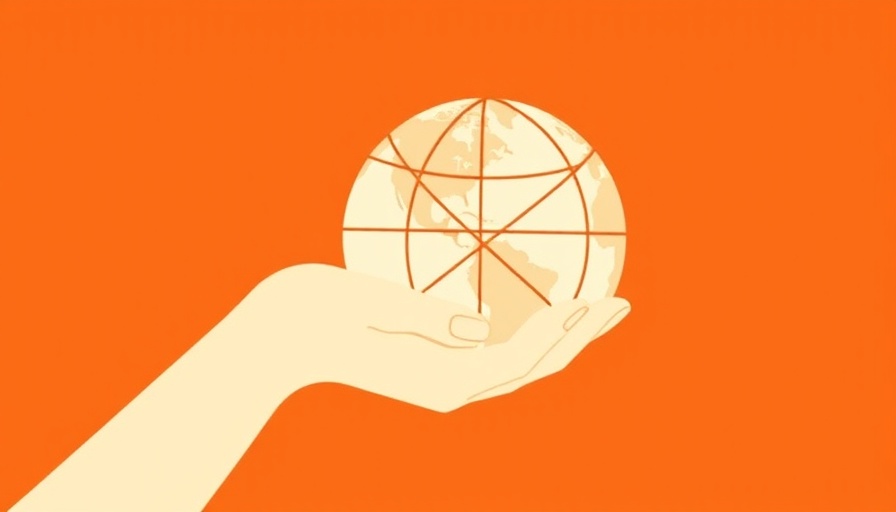
Anthropic's Claude AI Gets a Powerful Upgrade for Modern Needs
Anthropic's latest feature for its AI assistant, Claude, signals a substantial leap in how artificial intelligence interacts with real-time information from the web. Announced on March 21, 2025, this new web-search capability allows Claude to access and retrieve current information directly from the internet, something that has become crucial as AI technologies evolve and user needs change.
Why This Feature Matters: The Shift Towards Real-Time AI
Previously, Claude operated with a knowledge cutoff in October 2024, meaning that the AI could only generate responses based on data absorbed during its training phase. With the introduction of web-search capabilities, Claude will now have the ability to provide answers using the most up-to-date resources. This shifts AI from a static repository of information to a dynamic participant in information discovery—a parallel shift that is becoming essential in today's fast-paced digital environment.
Catching Up to Competitors: What Took So Long?
Many have pointed out that Anthropic's move to incorporate web search features comes almost two years after competitors like ChatGPT and Google’s Gemini introduced similar functionalities. Independent AI researcher Simon Willison noted, "This was sorely needed. ChatGPT, Gemini, and Grok all had this ability already. Despite Anthropic's excellent model quality, it was a big reason to keep other models in daily rotation." This delay raises questions about the competitive landscape of AI development and highlights just how critical timely updates are for maintaining relevance.
How Will Claude's Web Search Feature Work?
The web search feature is currently available exclusively to paid users in the United States, with plans to expand to free users and international markets later. Once activated, Claude can automatically determine when to utilize web-search capabilities, allowing for a seamless user experience. From sales teams conducting account planning to researchers crafting grant proposals, these applications show Claude's potential versatility in various professional environments.
The Future of AI Search Capabilities: Is This Only the Beginning?
The functionality of Claude’s new feature isn't just about answering queries but extends to more complex operations. As this technology evolves, we can anticipate the emergence of more “agentic” AIs capable of performing sophisticated searches autonomously—a simplified version of what’s becoming known as the “Deep Research” agent trend seen in other AIs. This evolution suggests that the future of AI could involve more interactive and smarter assistants that can not only search for answers but analyze and synthesize information with improved contextual understanding.
Implications for Diverse Sectors: Who Stands to Benefit?
The introduction of Claude’s web search capability has wide-ranging implications. Industries such as finance, where market data is vital, and retail, where timely price comparisons can significantly affect business decisions, are particularly well-positioned to benefit. By enhancing decision-making capabilities with real-time data, Claude can help users stay competitive.
Conclusion: Staying Ahead in AI Innovation
As Anthropic continues to innovate, the addition of real-time web search features to Claude exemplifies the ongoing transition towards more capable and interactive AI models. AI enthusiasts and industry stakeholders should keep an eye on how this technology develops and consider the potential impacts on various sectors.
For further information on Claude and its capabilities, consider monitoring Anthropic’s updates to stay informed on the next steps in AI. Knowledge will continue to shift from static to dynamic forms, and being prepared could make all the difference in leveraging these AI advancements successfully.
 Add Row
Add Row  Add
Add 




 Add Row
Add Row  Add
Add 

Write A Comment